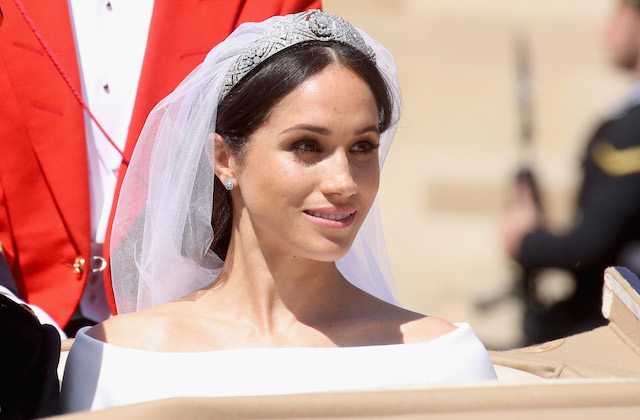Actress Meghan Markle jumped from the "Suits" soundstage to a very different public platform on Saturday (May 19), when she married Prince Harry of the British royal family and became Meghan, Duchess of Sussex. Markle celebrated the occasion by putting her own spin on the usual pageantry; the ceremony included Karen Gibson and The Kingdom Choir singing “Stand By Me," Bishop Michael Curry‘s sermon on "the power of love" and other nods to Markle’s Blackness alongside the typical symbols of the monarchy.
Scholar and activist Salamishah Tillet wrote about the historical and cultural importance of the ceremony in an essay for The New York Times yesterday (May 20):
"Through a series of thoughtfully curated and expertly executed performances, the world came to see Ms. Markle as she wants to be seen and, arguably, has always seen herself: as a woman who embraces Blackness as forthrightly and easily as she wears a Givenchy wedding dress and Queen Mary’s diamond tiara," Tillet wrote.
Tillet noted that several of the performances pointed to historic firsts for Black Americans and Britons. Curry is the first Black leader of the Episcopal Church, which traces its Anglican roots to the British monarchy’s Church of England. Cellist Sheku Kanneh-Mason, 19, the first Black artist to earn the BBC’s Young Musician of the Year honor, captivated attendees with his performance of three classical compositions.
The author gave specific shine to London-based ensemble Kingdom Choir and the links its performance drew between two parts of the African diaspora that are each impacted by nativist politics:
rnt
They did not simply give us a rollicking rendition of Ben E. King’s “Stand by Me,” but rather showcased the sheer breadth of a trans-Atlantic Black identity. Against the muted tones of their beige and mauve clothing, the various hues of their Brown complexions, the complexity of their hairstyles (ranging from twists to cornrows to straightened hair) and their expert use of the African-American songbook stood out even more.
t
Rather than bifurcate race, they offered up a bicultural Blackness, one that bridged [Markle’s mother Doria] Ragland’s and Ms. Markle’s African-American identities with the Black British identity that Ms. Markle is about to enter. Such an act of unity cannot ameliorate the ongoing racial hostility that Black Britons, particularly the “Windrush generation”—that wave of Caribbean immigrants who migrated to Britain from colonies between 1948 to 1971—now face as a result of Prime Minister Theresa May’s anti-immigrant rhetoric and policies. Against that backdrop, the inclusion of Kingdom Choir, who hail from South East London, took on an even greater significance: For many of them are likely the children of this “Windrush generation” and, in this ceremony, recognized as both fully British and unapologetically Black.
Read the full essay at NYTimes.com.
